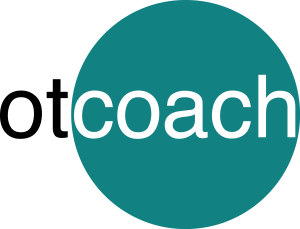I uttered those words when I attended my first coach training weekend back in 2005. I remember sitting there feeling quite “put out” as topics such as communication, listening, motivation, life skills etc. reared their head. I was seething. “we do this anyway! We’ve been doing this in OT for years! Grrr” these “coaches” need to learn a from our profession, not the other way round…what am I doing here?!” For once I glued my mouth shut and waited. What shortly followed was a demonstration of “coaching” and I quickly realised that this was not what I did as an OT, not at all.
When I spoke at Therapy Expo last month, it was about Coaching Skills for Therapists – in this case, not just OTs, but Physios, Osteopaths etc. I always start by talking about a “purist” coaching approach before I start showing how coaching can be blended within existing approach or how a coach approach to our work can be taken (take a look at the following piece called Elicit-Provide-Elicit). It’s easier to show the stark difference and show how different a coaching discourse really is. Take a look at this: http://www.youtube.com/watch?v=QI3Uqtdxs3I
This is an example of using metaphor in coaching, which is one of my favourite ways of working, but please notice how the combination of the coaching approach and the attention to the metaphor, both help unlock so much knowledge, wisdom and tangible actions!
In coaching, pure coaching, it is just a conversation – a dialogue between two people. There is no assessment, treatment or intervention process going on. There is a process, a coaching process, but not the OT process.
In coaching, pure coaching, the agenda comes from the client – what is discussed, is completely up to them. In a coaching relationship, the coach sees the client as completely creative, resourceful and whole. The client holds the answers, not the coach. The client isn’t seen as needing mending, fixing, sorting or saving. In coaching, the coach is not attached to the client’s outcome.
I’m not going to bang on about this as I hope when you watched the video, that is was clear to see how different this is, to most client conversations in Occupational Therapy.
There is such a danger in saying OT does “this” anyway, as it also “waters down” what OT really is. It’s like saying that we are also Psychologists or Social workers. As a profession, we have always struggled with our identity and I can really understand how the emergence of coaching, especially “life” coaching, could be perceived as a threat. I have felt this too, when looking at various non OT projects that use positive psychology or an arts/creativity based approach to health/well-being or someone who calls themselves an Activity Therapist!
Saying all this and I could say rather a lot more, there are ways of adopting a coach approach to OT and other therapies.


